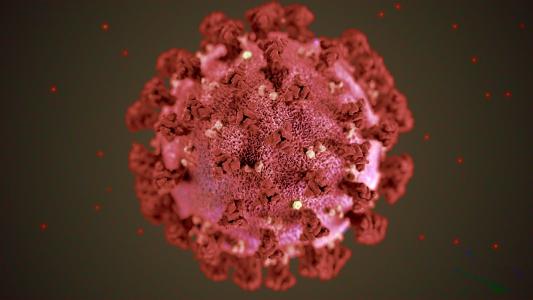The coronavirus behind COVID-19, SARS-CoV-2, is just one of seven coronaviruses known to infect people. Of those, four cause respiratory infections that are highly seasonal — warmer weather arrives, and the number of infections goes down.
But does that mean the same will happen with this coronavirus in the summer?
Will the Coronavirus End in the Summer?
If you’ve heard rumors floating around about warmer weather bringing an end to the coronavirus pandemic, you’re not alone — more than a fifth of U.S. adults in a recent Pew Research Center survey said they’d heard the same thing.
President Donald Trump himself said in February that he expected the virus to go away by April in response to rising temperatures. More recently, he touted a U.S. government lab study that suggests that both heat and sunlight accelerate the virus’s death.
Wherever the temperatures were colder, the number of cases started increasing quickly.
Qasim Bukhari
“Our most striking observation to date is the powerful effect that solar light appears to have on killing the virus — both surfaces and in the air,” William Bryan, science and technology adviser to the Department of Homeland Security (DHS), told reporters of the study, which has yet to be peer reviewed.
“We’ve seen a similar effect with both temperature and humidity as well, where increasing the temperature and humidity or both is generally less favourable to the virus,” he added.
That’s not the only study to suggest we have reason to hope for a possible end to the coronavirus in the summer, either.
A team from M.I.T. found that most coronavirus transmissions prior to March 22 occurred in places with temperatures between 37.4 and 62.6 degrees Fahrenheit. Places with temperatures above 64.4 degrees Fahrenheit, meanwhile, accounted for fewer than 6% of cases.
“Wherever the temperatures were colder, the number of the cases started increasing quickly,” Qasim Bukhari, co-author of that study, told the New York Times. “You see this in Europe, even though the health care there is among the world’s best.”
The Summer of COVID-19
As promising as those studies might be, though, most experts — even those directly involved in the aforementioned research — seem to agree that the summer months won’t be anything close to a coronavirus panacea.
“It would be irresponsible for us to say summer will kill the virus,” Bryan, the DHS official, told reporters.
Yes, warmer temperatures could slow the spread of the coronavirus in the summer and lower transmission rates, but even if they do, the effect won’t be so dramatic that we’ll be able to completely dispense with social distancing.
In other words, in the best case scenario, you might be able to safely enjoy a BBQ with close friends on the Fourth of July, but your kids probably won’t be going to summer camp, and you can forget about that music festival.
“It’s hard for me to imagine anyone going to Fenway Park and sitting with 30,000 fans — that will almost surely be a bad idea,” Ashish Jha, a public-health expert at Harvard, told the Atlantic. “This isn’t going to look like a normal summer in America.”
We’d love to hear from you! If you have a comment about this article or if you have a tip for a future Freethink story, please email us at tips@freethink.com.






